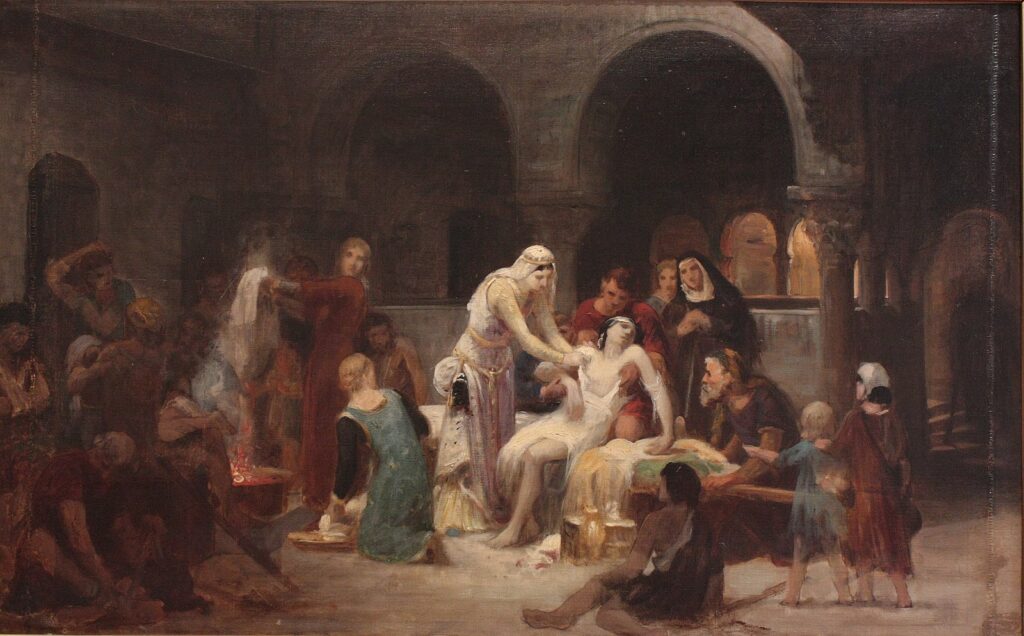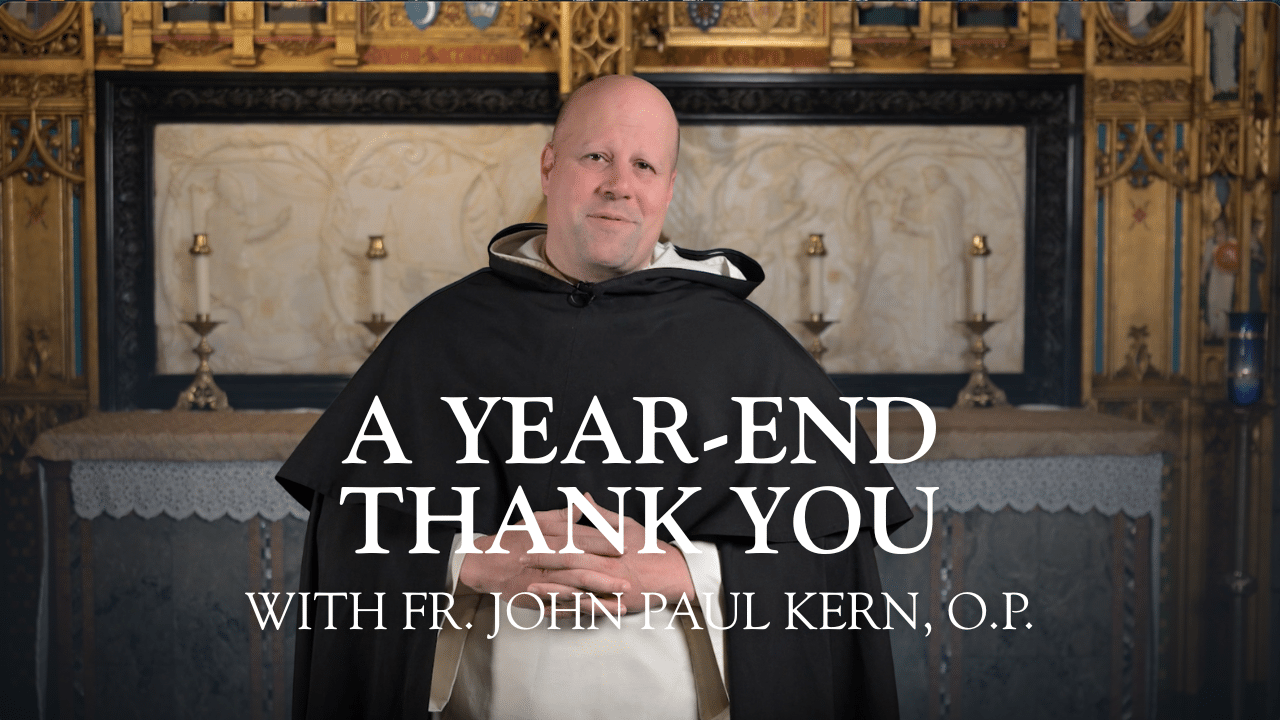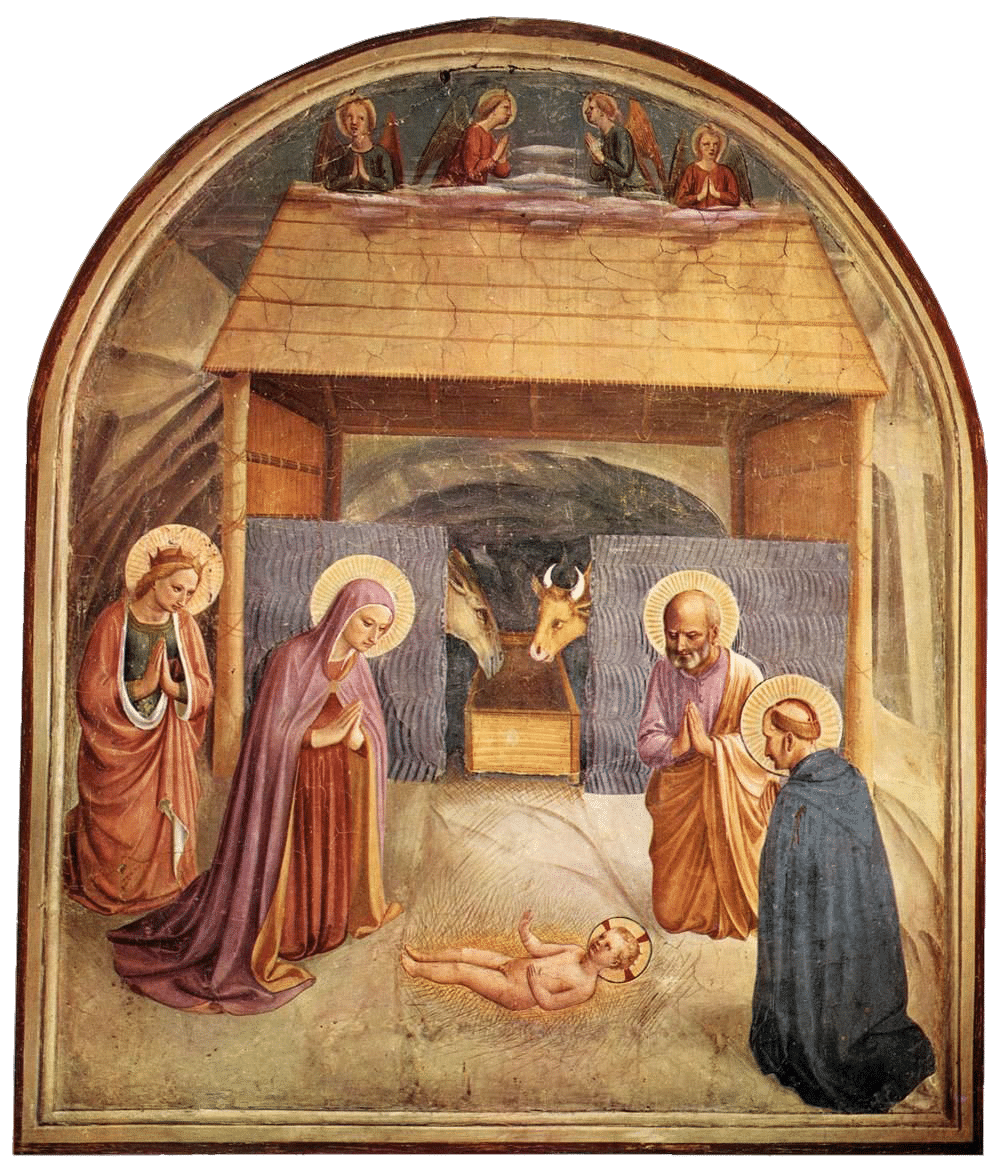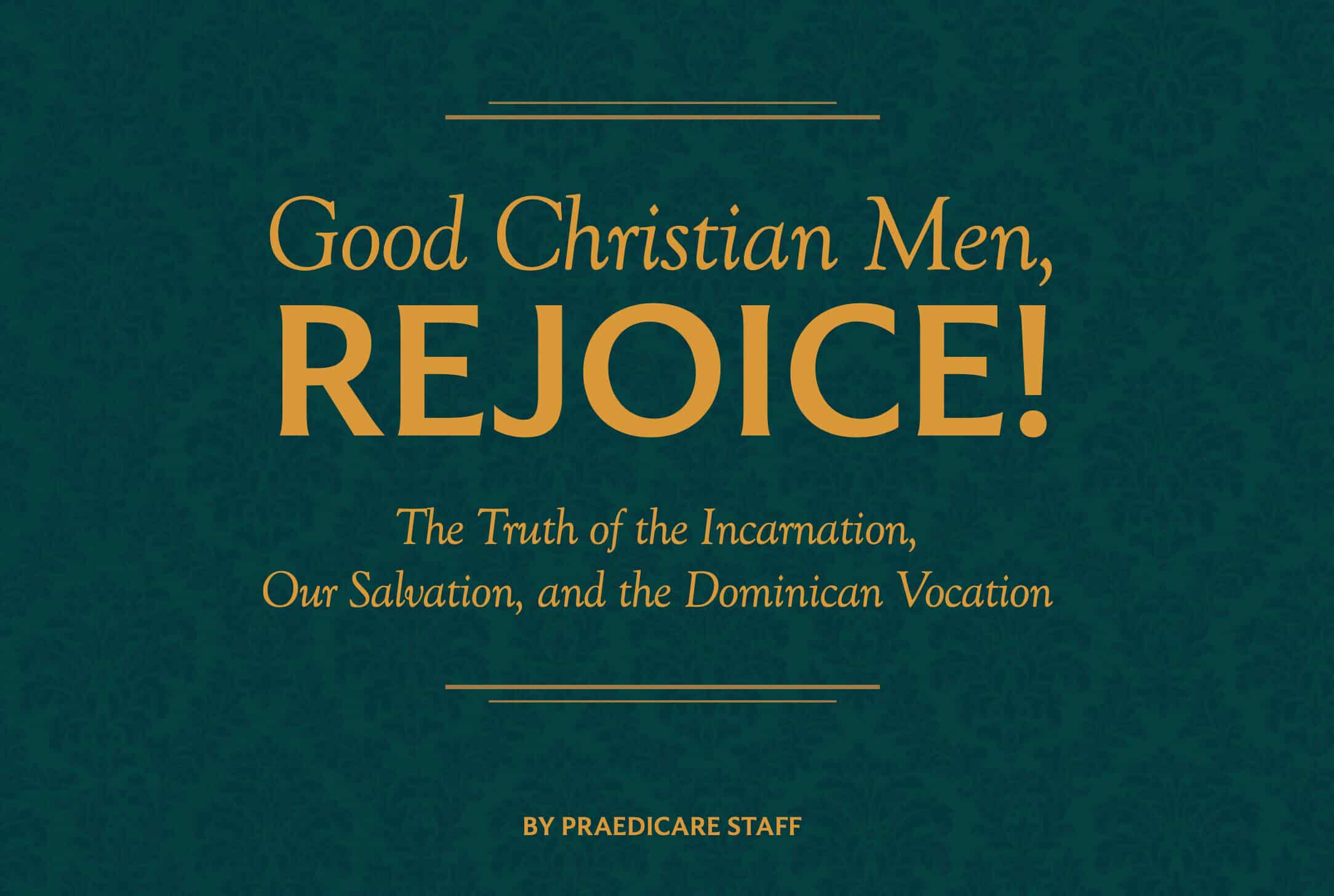
All Things Work for Good: A Tremendous Reason for Hope
By Fr. Cyril Stola, O.P.
“We know that all things work for good for those who love God, who are called according to his purpose” (Rom 8:28). With these famous words, St. Paul gives us tremendous reason for hope: God uses all things to the benefit of those who love him. All things. Joy, sorrow, fortune, and crisis alike can all work for the good of the faithful. For the greatest human good is holiness, and God has established the world in such a way that all things can conduce to a Christian’s holiness. Thanks to God’s wise design, the Christian always has reason to hope.
We find it easy to appreciate wealth, and wealth can indeed be a blessing—St. Elizabeth of Hungary was a queen born into fabulous wealth. She used that wealth to succor poor neighbors, whom she personally served in a hospital that she paid to build. Since St. Elizabeth loved God, giving up earthly wealth earned her treasure in heaven—in theological terms, merit.
Yet almsgiving is not the only way to attain merit. The Church also boasts of saints who had nothing and who earned treasure in heaven by other acts of love. St. Bernadette lived with hope despite crushing poverty. She could offer no wealth to God, but she did offer herself, and that offering was precious in God’s sight. Jesus words about the poor widow who offers two small coins in the temple applies to all such saints: “I tell you truly, this poor widow put in more than all the rest; for others have made offerings from their surplus wealth, but she, from her poverty, has offered her whole livelihood” (Luke 21:3-4).
Apart from economic matters, we find many paths to holiness in our vocations. For most this is marriage. The experience of rearing children is especially Godly—parents are made like Christ as they expend themselves sacrificially for their children. Saints Joseph and Mary exemplify such holiness above all others.
Nonetheless, as sanctifying as raising children is, not every husband or wife gets to be a parent. Infertility plagues many couples. It can be emotionally devastating, and it commonly makes couples feel lesser than their peers, even as they know that infertility is beyond their control. Yet as sanctifying as raising children is, God does not leave the barren without hope.
Servant of God Elisabeth Leseur was afflicted by many ailments and remained barren. Elisabeth’s husband wrote that to have children “was her great desire, and the privation was an inconsolable grief.” Nonetheless, Elisabeth’s sufferings did not prevent her from attaining holiness but rather served as the very means of her sanctification. In lieu of children of her own, Elisabeth showed tender concern for her godchildren, and she offered the wound of unfulfilled longing up to God as a sacrifice for the good of souls. Through all her sufferings, Elisabeth kept a firm hope that the great pains and disappointments of life could bear spiritual fruit. In her “Little Treatise on Hope” Elisabeth wrote: “We know that nothing is lost, either in the material or spiritual world, and that the lowliest of our actions, the most secret of our prayers, has immeasurable force … Does this not explain suffering?”
Jesus Christ lived a fully human life, sanctifying human experience in every domain of life such that everyone can be holy in every circumstance. A life marked by weakness and suffering can be holy and lead to heavenly bliss in the highest degree. St. Margaret of Castello was abandoned by her parents because she was blind and crippled, yet nothing was lost in her suffering since she suffered with Christ. On the other hand, St. Francis of Assisi renounced the inheritance due to him from his parents and used his strength to rebuild churches and chapels around Assisi and to care for lepers. When his faithful love him, God uses the weak to shame the strong (cf. 1 Cor 1:27) and he uses the strong to serve the weak. All have a role to play in his grand design, and all can become holy.
God loves mankind to such an extent that he makes holiness available to men and women in every state of life, with every level of talent, wealth and health. He orders all things sweetly. God has stacked the deck in our favor such that every circumstance can lead those who love him to holiness. His ability to sanctify us by manifold means gives us every reason for hope. Whoever we are, wherever we are, whatever we have done or failed to do, God seeks to make us holy. God has fashioned the world such that all things work for good for those who love God. In God’s wise design we place our hope.






